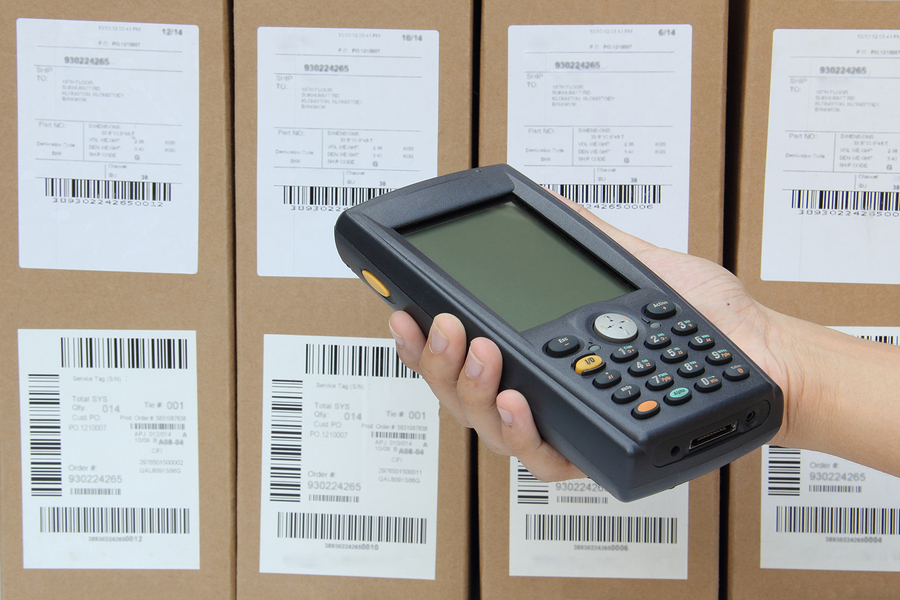Moving Forward with Reverse Logistics
The case for implementing a reverse logistics program
By Clare Tattersall
A food recall is bad news for any business but it can be debilitating for those that don’t have an effective reverse logistics program in place.
Take Tesco, which was hit hard following the horsemeat scandal of 2013. The British-based multinational supermarket chain suffered an unpalatable profit loss after news broke that some of its beef products were contaminated with horsemeat. Although Tesco cleared store shelves and promised to thoroughly investigate the matter, it still sustained subsequent setbacks. Not only did the U.K.’s advertising watchdog chastise the retailer for leading the public to believe “all retailers and suppliers were likely to have sold products contaminated with horsemeat,” which was not the case, but Tesco was unable to pinpoint how long its suppliers had been delivering contaminated product. This left a bad taste in shoppers’ mouths and resulted in a loss of confidence in the retailer.
“It’s astonishing that you still see grocery retailers that believe they can operate without a reverse logistics program or an inadequate one at best,” says Gailen Vick, executive director of the Reverse Logistics Association (RLA).
But it’s the case, albeit things are changing.
The benefits of a good reverse logistics strategy
Most companies’ primary focus continues to be the forward supply chain (forward logistics) – the process of getting products to market – because of its impact on a business’ bottom line. The reverse supply chain (reverse logistics) is often an afterthought, which, according to Vick, is counterproductive.
“A lot of companies are ignorant,” he says. “It’s necessary to have a reverse logistics program in place otherwise (a food recall) can cost an organization five to seven per cent of its bottom line.”
How so?
Reverse logistics encompasses all activity associated with a returned product. According to Inmar, a technology company that provides real-time supply chain data and analytics for products as they move through the forward and reverse supply chain, this includes (but is not limited to): notifying supply chain partners; capturing information from each partner on recalled product presence and quantity; facilitating return authorizations; deploying a field force to manage on-site activities; retrieving product and facilitating transportation; regulatory reporting; facilitating product handling and disposition in compliance with regulatory requirements; and managing consumer notifications, communications and inquiries. Reverse logistics encompasses all activity associatd with a returned product. If a proper plan is not in place (prior to a food recall) to address these activities, then opportunities will be missed to salvage revenue and build better relationships with customers, the latter of which also has financial implications.
“When consumer confidence in a brand is eroded, future sales will be impacted for the recalled product,” explains Steve Dollase, president of Inmar’s supply chain network. “Beyond the specific product being recalled, consumers may also avoid the brand itself, impacting sales of the brand’s other products even though they weren’t connected to the recall.”
Product returns exact a toll not only on a company’s image and sales but its profit margin. However, there are ways to mitigate financial loss and even make the reverse supply chain into a revenue generator.
A key area to focus on to recoup cash lost from a food recall is product disposition.
Landfill disposal is the simplest option but it should be a last resort for both monetary and environmental reasons. Haulers often charge more if food waste is not separated from the trash and sent for composting. More importantly, when food is disposed in a landfill, it rots and becomes a significant source of methane. This potent greenhouse gas has 21 times the global warming potential of carbon dioxide, according to the U.S. Environmental Protection Agency (EPA).
Nonetheless, there are times food product must be disposed of in this manner. For example, “If the recall involves certain bacterial contaminants, such as salmonella, there are explicit product handling and disposition requirements,” says Dollase.
The keys to a successful reverse logistics program
Ideally, recalled food product should be composted and any packaging recycled (when possible), says the EPA. Organic waste can be converted to renewable energy through a process called anaerobic digestion while polymeric materials can be recycled to make new food containers. However, the only way to truly optimize this disposal option is to know from the get-go – typically the design phase – what can be done with a product at the end of its lifecycle.
“The most important thing (in a recall program) is planning,” says Dollase. “And planning isn’t just ‘having a plan.’ A good strategy is a plan that has been tested and verified.”
Collaboration and having the right expertise are also key to a program’s success, adds Dollase.
This is where hiring a third party service provider may be beneficial. Not only can a field force specifically trained to deal with a food recall step in immediately to execute well-orchestrated communication, but it has the capabilities to manage the recovery and destruction of product, regulatory compliance and interfacing with regulatory agencies.
“The right expertise can also help to reduce the scope of a recall through proactive dialogue with regulators,” says Dollase.
That being said, it’s important not to rely solely on a reverse logistics program to solve a food recall. A reverse logistics program is an important component of recall management and it may improve a company’s ability to move product in a recall, says Dollase, but it’s not a plug-and-play tool for recalls. Many variables drive the response and means of conducting a recall. Health hazards, depth of a recall and product characteristics are just a few.
“Companies that are good at reverse logistics may have the agility and capabilities that are necessary for effective recall execution but recalls are very event and issue driven, so the same process used in everyday returns management won’t completely meet the needs of a recall,” he notes.
About the Author
Clare Tattersall is a freelance writer in Toronto, Ontario.
To have more articles like this emailed to your inbox, become a GFSR Member today!

-
 FeaturedRisk management
The Cost of a Breach: What a Cyberattack Could Mean for Food Safety Recalls
FeaturedRisk management
The Cost of a Breach: What a Cyberattack Could Mean for Food Safety Recalls
-
 FeaturedRisk management
Securing the Food Chain: How ISO/IEC 27001 Strengthens Cybersecurity
FeaturedRisk management
Securing the Food Chain: How ISO/IEC 27001 Strengthens Cybersecurity
-
 FeaturedRisk management
Revolutionizing Food Safety Training: Breaking Out of the “Check-the-Box” Mentality
FeaturedRisk management
Revolutionizing Food Safety Training: Breaking Out of the “Check-the-Box” Mentality
-
 GFSI Standards
GFSI 2025: Building Trust, Tech-Forward Solutions, and Global Unity in Food Safety
GFSI Standards
GFSI 2025: Building Trust, Tech-Forward Solutions, and Global Unity in Food Safety
-
 FeaturedFood Safety
Integrated Pest Management: Strategies to Protect Your Brand’s Reputation
FeaturedFood Safety
Integrated Pest Management: Strategies to Protect Your Brand’s Reputation
-
 FeaturedFood Safety Culture & Training
No Open Door Policy: Challenges That Impact Pest Control in Food Processing Plants
FeaturedFood Safety Culture & Training
No Open Door Policy: Challenges That Impact Pest Control in Food Processing Plants




